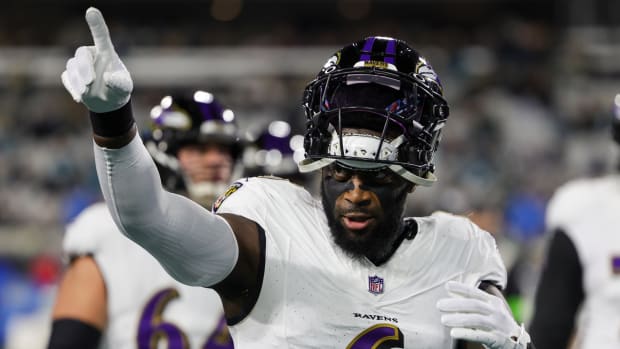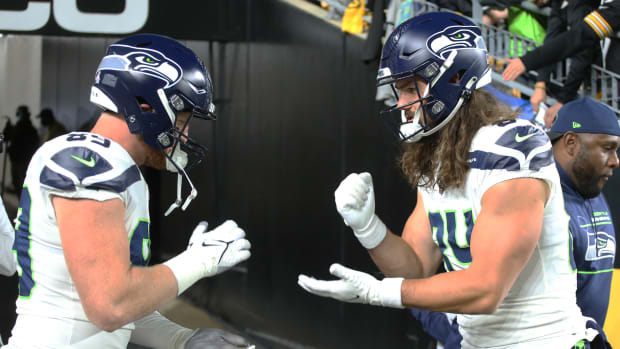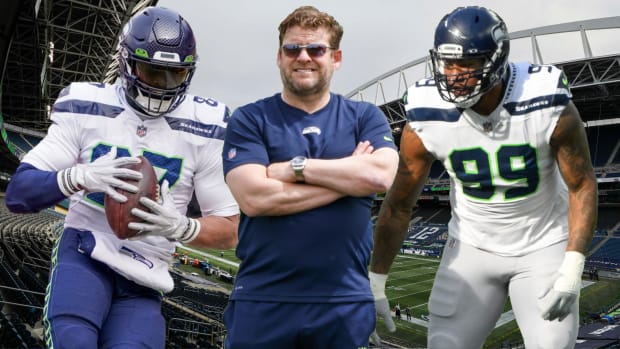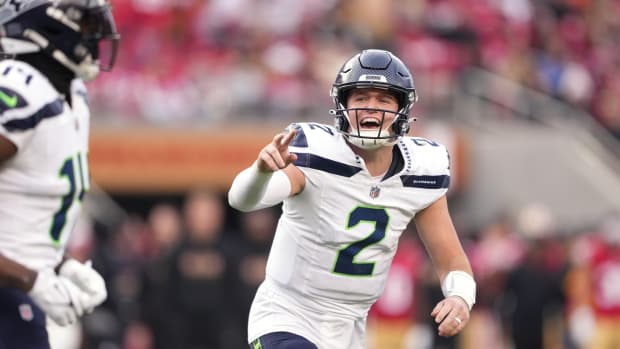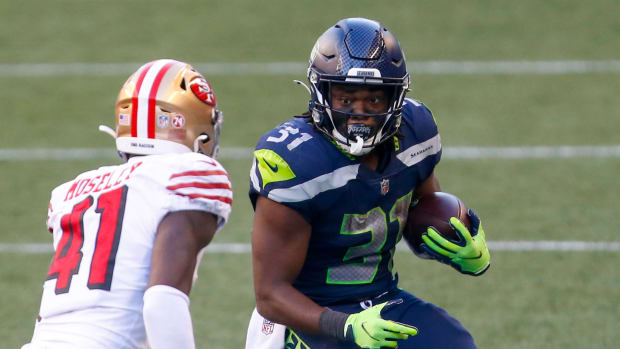Always Compete? That's Not Case For Seahawks With Compensatory Picks
Following a short lockout, the NFL and NFL Players Association came to terms on a new collective bargaining agreement before the start of the 2011 season. Several big changes were part of the new deal, but one of the most notable changes came in the form of overhauling how the league awarded compensatory picks, which are given to teams who end up with more or better qualifying free agents lost than gained in a particular offseason.
During the first seven seasons after the new CBA was signed, general manager John Schneider and the Seahawks stood out as one of the NFL's most dedicated players in the "comp pick game." From 2011 to 2017, the team amassed 12 additional compensatory picks, with the most notable being Super Bowl MVP Malcolm Smith as a seventh rounder in 2011. That's nearly two compensatory picks per draft and on two occasions, they had at least three picks rewarded.
But since missing the postseason in 2017 - the only time Seattle hasn't made the playoff field in the past nine seasons - the organization has for the most part stopped playing the game. With another compensatory pick deadline passing earlier this week, the Seahawks will not have a single additional pick in the 2022 NFL Draft, marking the fourth time in five years that the team hasn't had one.
How can this shift in philosophy be explained? Well, it's complicated.
During the early years of Schneider's tenure as head executive, the Seahawks were able to build a juggernaut of a roster through shrewd drafting and free agent signings. They were able to do so in part because quarterback Russell Wilson, linebacker Bobby Wagner, cornerback Richard Sherman, and safety Earl Thomas were on cheap rookie deals, creating immense cap flexibility to be able to sign players like Michael Bennett and Cliff Avril.
After the Seahawks dominated the Broncos in a 43-8 beatdown in Super Bowl XLVIII, other teams swooped in to sign several of their players in free agency. With Wilson, Wagner, Sherman, Thomas, and others approaching lucrative pay days, Schneider had to let quality starters such as receiver Golden Tate walk. The same thing happened after a heartbreaking loss to the Patriots in Super Bowl XLIX, as an exodus of players left in free agency.
While Seattle actually didn't get a single compensatory pick in 2014, the team was awarded a maximum of four compensatory selections in the 2015 NFL Draft. Unfortunately, those selections turned into guard Mark Glowinski, cornerback Tye Smith, defensive end Obum Gwacham, and center Kristjan Sokoli, none of which were on the team beyond the 2017 season.
The Seahawks again had three compensatory picks in 2015, with Schneider allowing several more compensatory free agents to leave than he signed from other teams. Just as the case was one year earlier, none of those picks panned out, as running back Alex Collins, tackle Rees Odhiambo, and center Joey Hunt all were off the roster by last offseason. Collins did return last year as a reserve, but he was released after his second training camp in 2017. Odhiambo washed out of the league after two years.
With none of those seven compensatory selections emerging as a viable starter for Seattle, Schneider has been far less cautious about signing unrestricted compensatory free agents over the past five seasons. The low hit rate on those selections may have impacted his approach, but there were other factors at play as well.
For one, after years of losing impactful compensatory free agents, the Seahawks suddenly didn't have many players who were attractive commodities to other teams. They lost just one compensatory free agent in 2017 in the form of kicker Stephen Haushka. No other notable free agents departed and the team made a few signings of unrestricted free agents, including cornerback Cary Williams, canceling out Hauschka's exit and leaving the team without a compensatory pick.
One year later, tight end Jimmy Graham and receiver Paul Richardson weren't retained by Seattle and signed contracts with Green Bay and Washington respectively. But Schneider had numerous holes to fill after Kam Chancellor and Avril suffered career-ending injuries and the team bid farewell to Sherman and Bennett.
While Graham and Richardson counted towards the compensatory formula, Sherman and Bennett did not because they were cut and traded respectively. With all of the roster openings after a disappointing 9-7 season, Schneider opted to go the free agency route to plug a number of spots with short-term answers, including tight end Ed Dickson, receiver Jaron Brown, and guard D.J. Fluker. With those three moves alone, the franchise was out of the running for a compensatory pick.
The next offseason, Schneider reverted back to prior form by airing caution pursuing unrestricted free agents. Five players were lost in total, including the disgruntled Thomas, cornerback Justin Coleman, and guard J.R. Sweezy. Only three compensatory free agents were signed before the deadline and one of them - Cassius Marsh - was eventually cut, leaving the Seahawks with three 2020 compensatory picks used to select defensive end Darrell Taylor, running back DeeJay Dallas, and receiver Freddie Swain.
Secondly, Schneider may have been trying to land compensatory picks but simply didn't have good fortune on his side. One year ago, amid the beginning of the COVID-19 pandemic, Seattle's top unrestricted free agent in Jadeveon Clowney waffled on his decision all the way up until training camp before signing with Tennessee. As a result, the team didn't get any compensation for his exit, while Germain Ifedi signed with Chicago for league minimum and thus didn't count towards the formula.
With that said, the Seahawks did sign five compensatory free agents last offseason, making Clowney's long wait and Ifedi's lack of a market irrelevant. The team likely wouldn't have gotten a pick if they signed in March for more money anyway.
This year, while Shaquill Griffin and Carlos Hyde bolted for Jacksonville and David Moore went to Carolina, Seattle's other top unrestricted free agent K.J. Wright has yet to sign with anyone, meaning he won't count towards the formula. Though the team has signed some players who were cut by other teams such as Robert Nkemdiche, they also signed five free agents who count against the formula, including Griffin's replacement in Ahkello Witherspoon and Kerry Hyder.
The bottom line? The Seahawks have been operating on a year-to-year approach signing a number of free agents to one or two-year deals over the past several seasons rather than hoping to get a fourth or fifth round pick in the following draft. Coupled with the fact the team hasn't had many desirable assets hit free agency and leave, they haven't been able to play the comp pick game even if Schneider still wants to, which is up for debate given the low hit rate on those picks over a decade.
These situations are fluid and with the expectation that next offseason will be far closer to normal, Schneider may very well rack up a few compensatory picks for the 2023 draft. But based on past precedent and the team's lack of players under contract beyond next year, it's more likely he will continue to prioritize free agents over mid-round picks moving forward.
